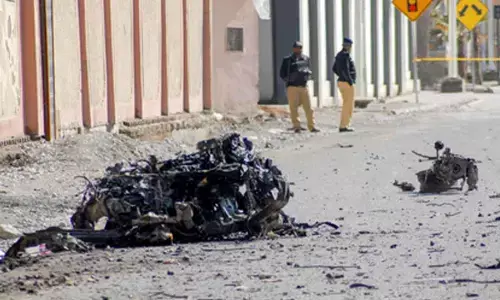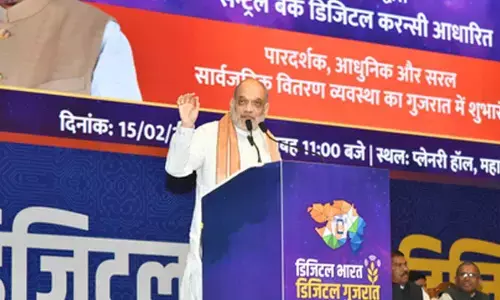Apologies over colonial misdemeanour

The UK government has refused to tender a full apology to India for the Jallianwala Bagh massacre on the eve of the centenary of one of the darkest chapters of the Indian freedom struggle. The reason cited was financial implications of it.
The UK government has refused to tender a full apology to India for the Jallianwala Bagh massacre on the eve of the centenary of one of the darkest chapters of the Indian freedom struggle. The reason cited was financial implications of it.
The UK Foreign Office Minister Mark Field told a debate on Jallianwala Bagh massacre in the House of Commons that though it was a shameful incidence, there were concerns over it and hence, the government was conveying its 'deepest regret'. Well, it is a big political question facing the UK.
The country has been asked by several countries to tender full-fledged apologies for the wrongs of its colonial rule. A question facing it is whether a reconciliation has to be more than empty symbolic gestures and feed into that public illusion that everything is okay. Certainly, it is hard not to take a dim view of European colonialism, entailing - as it did - theft, racism, cultural destruction, slavery and sometimes genocide.
Yet merely recognising the violations of colonialism does not automatically lead to the conclusion that the States that once practised it should now apologise for their historical misdeeds.
One of the most common arguments against apology is that offered by former Australian Prime Minister John Howard when called upon to offer an apology to aboriginal peoples for the wrongs visited upon them since British settlement.
He maintained that today's generation cannot and should not be held accountable for the behaviour of their predecessors. Indeed, from a liberal perspective, the idea of holding people responsible for the crimes of their ancestors is deeply unsatisfactory.
A counter argument is that, while the current generation did not actually commit the crimes, many within it still reap the rewards of a world in which white Europeans and the descendants of white settlers remain disproportionately privileged in comparison to the peoples they once conquered.
As such, the privileged among the current generation acquire guilt by virtue of the fact that their favourable position in the contemporary capitalist system has its roots in empire. But there are problems with this argument.
There's little doubt that many accrued their contemporary privilege through empire – but this position lacks any nuance in distinguishing between the perpetrators, foot soldiers, onlookers, objectors and the current generation.
Moreover, clearly many white Europeans also suffered in the colonial process, just as not all benefit from modern capitalism or 21st century overseas wars. The issue has been debated over and again in the European media and a potential solution was advocated thus: acknowledge that the current generation did not do wrong, but their State did.
In this sense, political leaders, as representatives of the culpable entity, should apologise on behalf of the State and its citizens for the State's misdeeds. This only works when it was the State that committed the violations, rather than settlers or organisations acting independently of the State.
It also assumes that the same State that perpetrated the crimes remains intact today. A problematic example here is Turkey being asked to apologise for the Armenian genocide when the event occurred before the establishment of Turkey as a republic in 1923. The debate is bound to continue.










